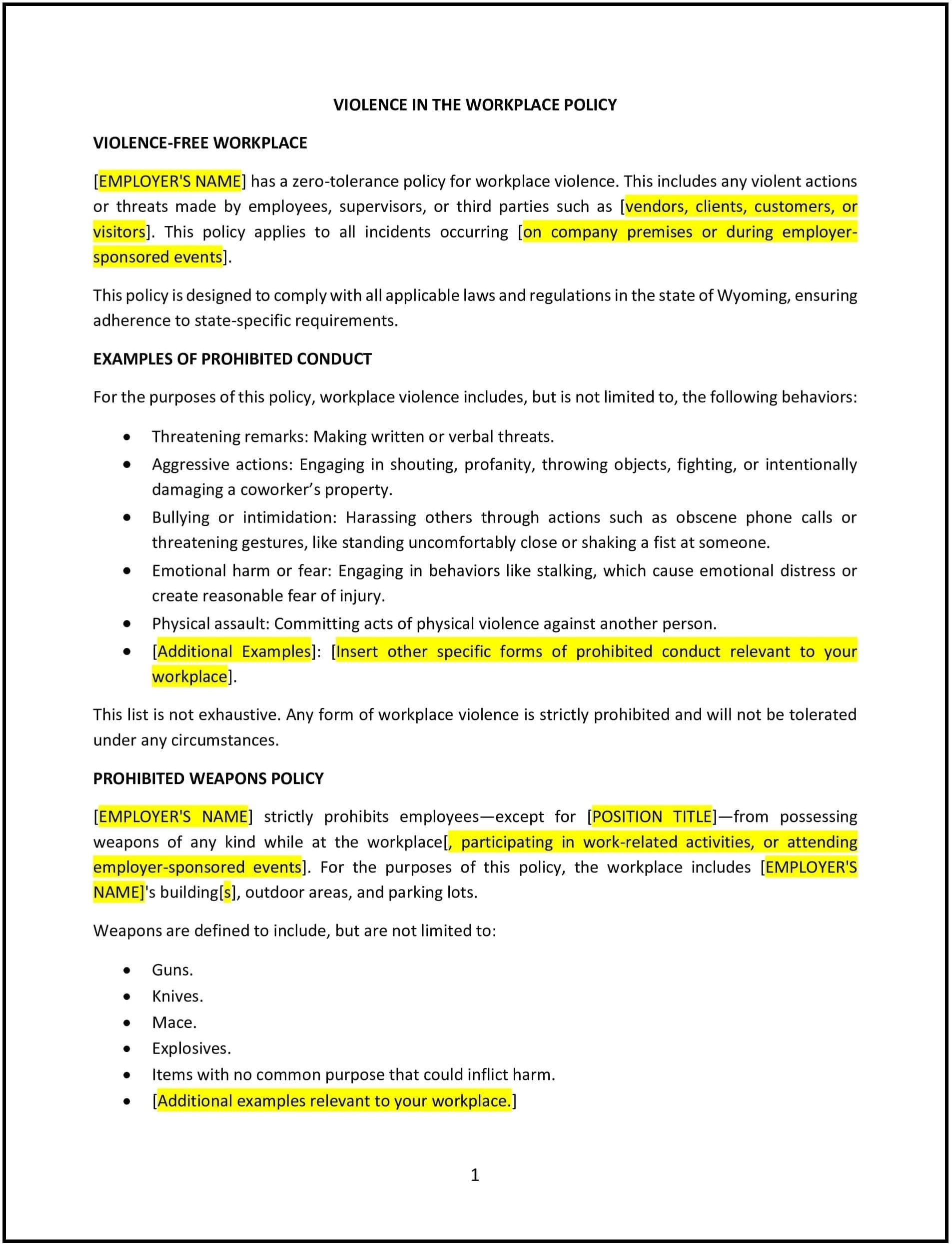Violence in the workplace policy (Wyoming): Free template
Got contracts to review? While you're here for policies, let Cobrief make contract review effortless—start your free review now.

Customize this template for free
Violence in the workplace policy (Wyoming)
In Wyoming, a violence in the workplace policy provides employees with guidelines for preventing, reporting, and addressing incidents of workplace violence. This policy prioritizes the safety and well-being of all employees while enhancing compliance with state and federal laws.
This policy outlines definitions of workplace violence, reporting procedures, and prevention measures to create a secure and supportive work environment.
How to use this violence in the workplace policy (Wyoming)
- Define workplace violence: Clearly specify what constitutes workplace violence, including physical aggression, threats, harassment, and intimidation.
- Outline prevention measures: Include strategies to prevent violence, such as security protocols, employee training, and access control measures.
- Provide reporting procedures: Detail the steps for employees to report incidents, including who to contact and how to document concerns.
- Establish response protocols: Include procedures for addressing reported incidents, such as conducting investigations, offering support to affected employees, and taking corrective actions.
- Support compliance: Align the policy with Wyoming labor laws and Occupational Safety and Health Administration (OSHA) guidelines to ensure legal adherence.
Benefits of using a violence in the workplace policy (Wyoming)
A violence in the workplace policy provides several advantages for Wyoming businesses:
- Enhances safety: Protects employees and customers by promoting a secure work environment.
- Supports compliance: Aligns with state and federal safety regulations, reducing the risk of legal disputes or penalties.
- Improves workplace culture: Demonstrates a commitment to employee well-being and fosters a culture of respect.
- Encourages accountability: Sets clear expectations and consequences for violent behavior.
- Adapts to local needs: Reflects Wyoming’s unique workforce dynamics and industry-specific safety considerations.
Tips for using a violence in the workplace policy (Wyoming)
- Communicate effectively: Share the policy with employees during onboarding and provide regular reminders about reporting procedures.
- Provide training: Offer training programs on recognizing, preventing, and responding to workplace violence.
- Foster a supportive culture: Encourage open communication and provide resources for conflict resolution.
- Monitor compliance: Conduct regular reviews of workplace safety practices and address vulnerabilities promptly.
- Review periodically: Update the policy to reflect changes in laws, workplace dynamics, or safety concerns.